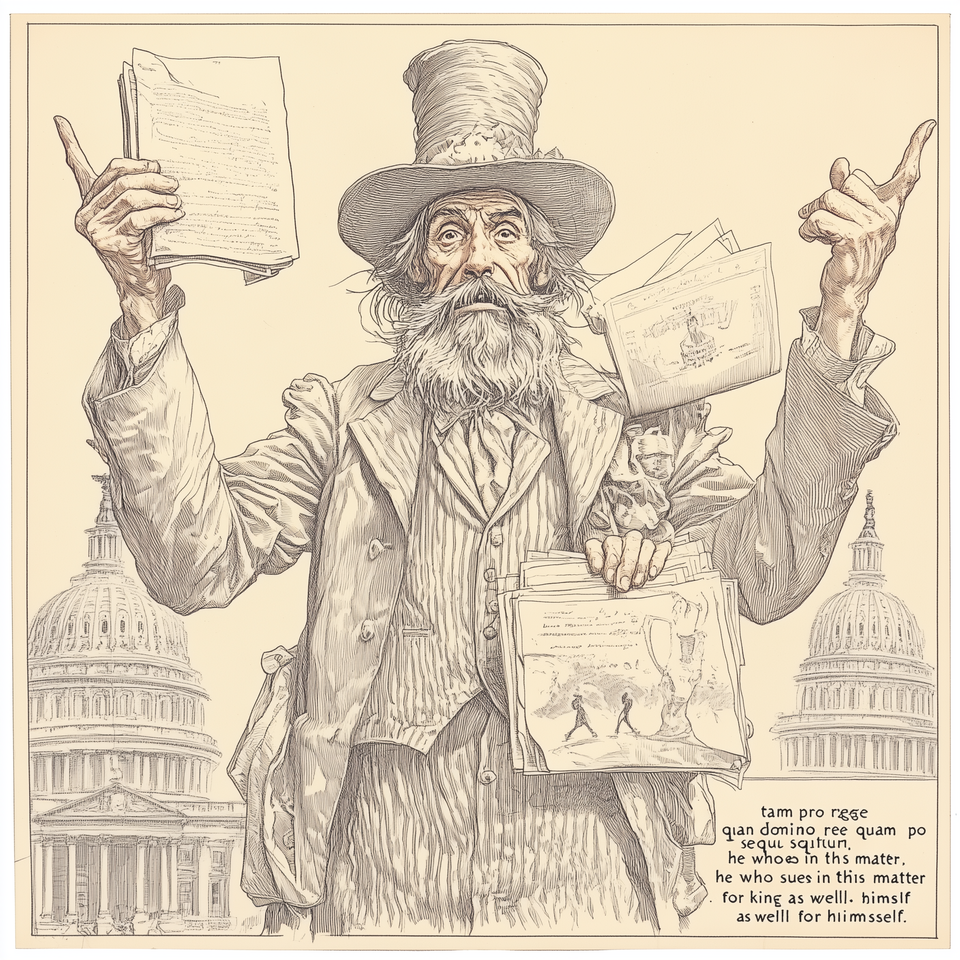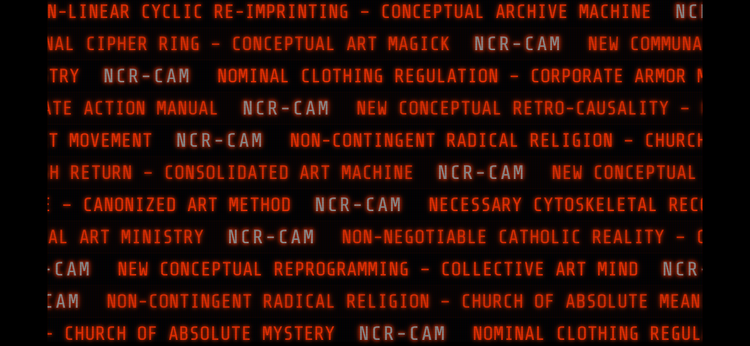A Shield for Corruption: The Implications of Repealing Qui Tam

The History and Modern Role of Qui Tam in Protecting Society
The legal concept of qui tam has deep historical roots that reach back to Roman law and evolved through English and American legal traditions. It has served as a critical mechanism to encourage private individuals to help uphold laws and expose wrongdoing that harms the public or the government. In today’s complex social and economic landscape, the qui tam principle continues to play an essential role in maintaining transparency and accountability. Its potential repeal or curtailment could have serious consequences for society’s collective security and integrity.
Historical Origins of Qui Tam
The term qui tam comes from the Latin phrase “qui tam pro domino rege quam pro se ipso in hac parte sequitur,” which translates to “he who sues in this matter for the king as well as for himself.” The concept dates back to early Roman law, where citizens were allowed to bring cases on behalf of the state and share in any financial recovery. This legal tradition crossed over to England, where it became an integral part of common law by the Middle Ages. English kings recognized the value of leveraging citizen involvement in uncovering wrongdoers who committed fraud or violated laws that harmed the monarchy’s interests.
In 13th-century England, various statutes allowed private individuals to sue violators on behalf of the Crown and receive a portion of the penalties. It was both a way to enforce laws and offer incentives to citizens who acted in the public interest. The idea was imported into American law during the colonial period and eventually became a cornerstone of anti-corruption legislation in the United States.
The Rise of Qui Tam in American Law
The most significant use of qui tam provisions in modern history came with the enactment of the U.S. False Claims Act (FCA) in 1863, during the Civil War. Rampant fraud against the Union Army in the form of defective supplies, corrupt contracts, and financial manipulation prompted Congress to adopt the FCA. The law empowered private citizens, known as relators, to sue on behalf of the government and recover damages, receiving a share of the recovery in return. This incentivized insiders and whistleblowers to step forward with vital information on fraud, embezzlement, and corruption.
Since then, the False Claims Act has been revised and expanded to cover not only military procurement fraud but also Medicare fraud, environmental violations, and other forms of misuse of government funds. The FCA has proven to be an effective tool for recovering billions of dollars in taxpayer money and deterring fraud.
The Modern Role of Qui Tam Provisions
Today, qui tam actions are a crucial pillar of the American legal system’s efforts to maintain accountability, especially in large and complex sectors like healthcare, defense, and finance. The current legal structure allows whistleblowers to work with the government in uncovering fraud and corruption while sharing in any resulting recovery. This model ensures a collaborative approach, incentivizes insiders to come forward, and deters misconduct by significantly raising the financial risks of being caught.
Qui tam cases have been responsible for unveiling major scandals and abuses that would otherwise have remained hidden. For example, whistleblowers under the FCA have exposed fraudulent billing schemes in healthcare, unethical defense contractor practices, and environmental pollution cover-ups.
The Dangers of Repealing or Curtailing Qui Tam
Attempts to repeal or restrict qui tam provisions pose a serious threat to society’s ability to hold powerful institutions accountable. Without this mechanism, many violations would remain unreported due to the significant personal and professional risks faced by whistleblowers. Financial incentives provided by qui tam are often the only practical protection and motivation for individuals to come forward.
Removing or weakening qui tam provisions would likely result in:
• Decreased Transparency: Corporations and government contractors would face less scrutiny, reducing incentives to act ethically and increasing the likelihood of fraud or illegal activity going undetected.
• Diminished Deterrence: The risk of significant financial penalties is a major deterrent against fraud. Limiting qui tam actions would weaken this deterrence, allowing wrongdoing to proliferate.
• Greater Risk to Public Welfare: In sectors like healthcare, defense, and environmental protection, fraud and violations can have dire consequences on public welfare and safety. Qui tam provisions ensure that insiders have a channel to report misconduct without fear of retaliation.
Why Qui Tam Matters for Security
At its core, the principle of qui tam is rooted in the idea that citizens have a vital role to play in maintaining the integrity of their society. By creating a financial incentive to report wrongdoing, qui tam provisions democratize accountability, making it harder for fraudsters to operate without detection. This collaborative approach between citizens and the government enhances security in several key ways:
1. Financial Security: It helps protect taxpayers’ money by ensuring that public funds are used efficiently and legally.
2. Healthcare Security: It helps identify and penalize fraudulent schemes that compromise patient care or inflate medical costs.
3. National Security: It enables insiders to report contractors providing substandard goods or services to the military, safeguarding national defense.
4. Environmental Security: It provides a means to report companies violating environmental regulations, ensuring that the public and natural resources are not exploited or endangered.
Conclusion: The Continued Relevance of Qui Tam
In a time of increasing corporate power and complexity in public and private institutions, qui tam provisions are more relevant than ever. They empower everyday citizens to play a direct role in exposing corruption and misuse of public resources. Banning or repealing these provisions would not only erode public trust but also allow harmful actions to go unchecked, undermining the very security of society at large.
Qui tam actions are a reminder that accountability is not the exclusive domain of institutions, but a shared responsibility. At a time when public and private sectors are deeply intertwined, and global economies are linked through intricate networks, preserving this powerful legal tool is vital for safeguarding our collective interests.
A New Decision?
As the qui tam provisions were repealed by a Supreme Court decision, it could signal a dangerous consolidation of power and indicate governmental and institutional interests seeking to insulate themselves from scrutiny. Qui tam empowers private citizens to act as checks against corruption, fraud, and misuse of public funds. A repeal would represent a direct assault on this civic power, reinforcing concerns that government or corporate entities aim to shield themselves from accountability.
1. Curtailing Whistleblower Protections: By removing or limiting qui tam rights, the government would be disempowering whistleblowers, who often face immense personal and professional risks when they come forward. This indicates a governmental preference to suppress insider dissent and protect itself and favored entities from exposure. When whistleblowers can’t receive financial incentives or protections, many fraudulent activities will likely go unreported, allowing corrupt systems to thrive.
2. Erosion of Transparency and Accountability: Qui tam laws force government contractors, corporations, and even public officials to operate with greater integrity. If the Supreme Court were to repeal these laws, it would be seen as a systemic attempt to reduce transparency. This sends a clear message: the system values shielding itself from scrutiny more than holding wrongdoers accountable. It would not be unreasonable to view such a decision as an endorsement of opacity and privilege for those in power.
3. Increasing Corporate and Government Collusion: The move to repeal qui tam protections would signal deeper ties between governmental and corporate interests. Historically, qui tam has been one of the few avenues where private individuals can challenge corporate fraud involving public funds. If the Supreme Court rules against qui tam, it could indicate a desire to preserve relationships between influential corporate entities and government institutions—relationships that may rely on taxpayer-funded contracts and deals.
4. Eliminating Civic Oversight: Qui tam stands as one of the few remaining legal tools that empower citizens to play an active role in maintaining government accountability. By dismantling this mechanism, a court decision would be perceived as prioritizing centralized control over public participation, weakening democratic oversight. Without the active involvement of the public in challenging fraud, the government’s ability to evade exposure for its own failings increases.
A Supreme Court Decision Repealing Qui Tam as a Red Flag
1. Judicial Enabling of Corruption: A ruling against qui tam could be interpreted as a tacit endorsement of corruption within both government and corporate sectors. This move would imply that the judiciary is willing to restrict legal avenues that promote accountability, thus enabling entities to continue exploiting their positions without fear of repercussion.
2. Intimidation of Future Whistleblowers: The repeal of qui tam laws would have a chilling effect on potential whistleblowers. They may view this as an indication that not only would they not receive support but that the highest judicial authority in the country is hostile to their efforts. Without the protections of qui tam, those with insider knowledge of fraud might feel increasingly isolated and vulnerable to retaliation.
3. Systematic Undermining of Trust in Institutions: Such a ruling would likely lead the public to question the motivations of the judiciary, the government, and the corporations involved. It would foster a narrative that the system is rigged in favor of those in power, creating widespread cynicism and potentially eroding trust in democratic institutions.
4. Selective Accountability: If the Supreme Court selectively curtails qui tam, it risks fostering a two-tiered system of accountability: one for ordinary citizens and small businesses, and another for well-connected corporations and government officials. This would deepen the perception that the government prioritizes protecting elite interests over the public good.
Why This Matters: The Role of Public Oversight
The qui tam system exists precisely because institutional corruption often goes unnoticed or is actively covered up by those within. Repealing or curtailing it would strip citizens of their ability to hold their government and powerful entities accountable, sending a clear signal that the system seeks to avoid exposure.
In summary, a Supreme Court decision repealing qui tam would symbolize a systemic failure to protect transparency and integrity. It would be viewed as an attempt to shield the government and its allies from exposure, signaling deeper institutional corruption. History has shown that when civic oversight is undermined, abuses of power grow more pervasive and insidious. Protecting qui tam provisions is crucial for maintaining the integrity and trust necessary for a functioning democratic society.






Member discussion